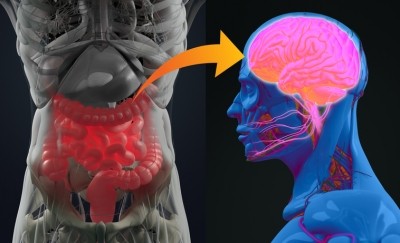Synthetic glycans developer issued warning over failure to file IND in COVID-19 trials

Kaleido Biosciences develops what it calls ‘synthetic glycans’ with the aim to affect the microbiomes of consumers. Glycan is another word for polysaccharide. Kaleido also uses the term oligosaccharide as a keyword to refer to its research. The molecules have received more attention in the past decade, with a 2012 report for the National Academies of Science, Engineering and Medicine calling for more research into this class of compounds that promises “great advances in areas as diverse as medicine, energy generation, and materials science.”
The US Food and Drug Administration sent the warning letter to the company recent over “objectionable conditions” it observed during an inspection earlier this year of the company’s facilities in Lexington, MA. These related to the way the company organized two trials with a candidate molecule dubbed KB109.
FDA views trials has having drug endpoints
One trial was an open label parallel group study that aimed to compare the effect of KB109 the gut microbiota structure and function for patients with mild to moderate COVID-19 symptoms as compared to patients undergoing what was referred to as ‘supportive self care.’ The other trial was a single group, open-label study aimed at evaluating the physiological effects of the molecule in a similar group. In both cases the subjects were not hospitalized.
In FDA’s view, the structure of the trials implied a disease treatment endpoint, so an Investigational New Drug (IND) application should have been filed. According to the Agency, the firm argued in a response to the initial inspection findings that the nature of KB109 meant that an IND was not needed.
“Kaleido argued that it was not obligated to submit an IND before initiating these clinical investigations because the article under study, KB109, was a food rather than a drug,” the warning letter stated.
The letter further stated that Kaleido maintained that it the aim of the trials was not test whether KB109 was effective in treating COVID-19 but rather to “evaluate the effect of KB109 on the microbiome[,] as well as to determine the safety and tolerability of KB109 in the diseased population.” FDA also alleged that Kaleido had asserted that KB109 was GRAS.
Waving a medical foods flag?
The warning letter also stated that Kaleido seemed to be eyeing a medical food positioning for KB109 when it designed the COVID-19 trials.
“Although Kaleido did not explicitly argue that the clinical investigations were exempt from the IND requirement because they studied KB109 for use as a medical food, it did state that the findings from these studies could ‘enhance our understanding of the distinct nutritional requirements (DNR) that may exist in individuals with respiratory viral illnesses such as COVID-19 and would support the positioning of KB109 as a medical food,’” the Agency wrote.
Attorney Marc Ullman, of counsel with the firm Rivkin Radler, said the blurring of the medical foods line has been an issue almost from the start of the category. The first medical food was a specially formulated protein product for children with phenylketonuria, an inborn error of metabolism in which the body can’t metabolize the ubiquitous amino acid phenylalanine, which has serious consequences. After that door was opened, product developers started trying to postulate a host of distinct nutritional requirements for a number of diseases.
“You are supposed to be supplying something that is nutritionally essential for the management of that disease. One of the issues is that FDA is confronting is that there are products that really should be dietary supplements and people try to shoehorn them into the medical foods category so that they can make claims on them,” Ullman told NutraIngredients-USA.
Molecules described in prebiotic terms
For its part, Kaleido on its website advertises the action of KB109 and its other candidates in similar language to that used to refer to most prebiotic dietary ingredients.
“Kaleido’s Microbiome Metabolic Therapies, or MMTs, are designed to drive the function and distribution of the microbiome’s existing microbes in order to decrease or increase the production of metabolites, or to advantage or disadvantage certain bacteria in the microbiome community,” the company said in a press release.
















